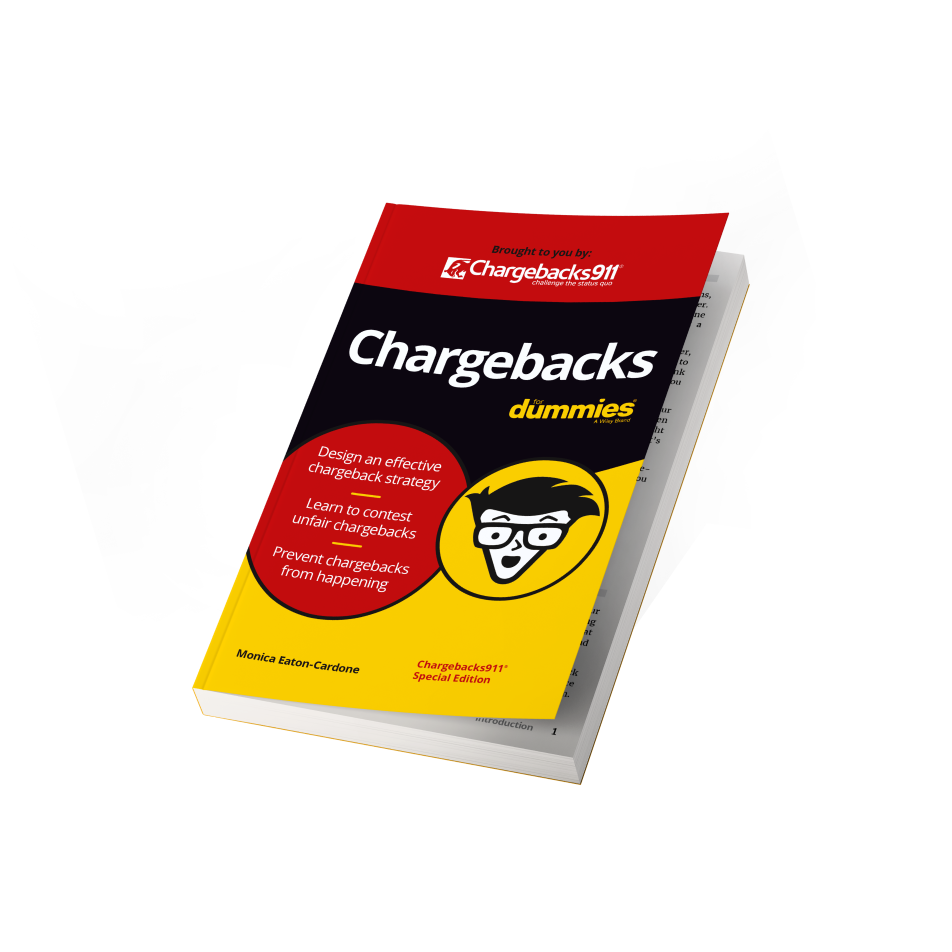Coupon Scams: An Old But Growing Threat
Remember that show Extreme Couponing?
You had two contestants facing off to see who could make the best strategic use of coupons to buy the most while spending the least.
It was like the producers at TLC tapped into the cultural zeitgeist with that one. The show’s debut coincided with the peak of the Great Recession. And, not surprisingly, interest kinda tapered off as the economy gradually recovered.
Well, it might be due in part to rising inflation, but it’s now trendy to be thrifty again.
According to Dontpayfull, 85% of American consumers use coupons to shop, shaving between $10 to $25 off their monthly spending. Research by the National Retail Federation corroborates this claim, finding that 26% of consumers in 2024 were using more coupons than they were previously.
Unfortunately, scammers are also exploiting this growing reliance on couponing. The result? Retailers lose out on over $100 billion in revenue per year due to fraud. And, coupon abuse is one of the primary sources of that lost revenue.
Recommended reading
- Fake Google Reviews: How to Identify, Remove & Prevent
- The Top 10 Prepaid Card Scams to Watch Out For in 2025
- How do Banks Conduct Credit Card Fraud Investigations?
- How Clean Fraud Works: Tactics, Red Flags & How to Prevent
- How Card Cracking Works: Tactics, Red Flags & Prevention
- Credit Card Cloning: How it Works & How You Can Prevent It
What is a Coupon Scam?
- Coupon Scam
A coupon scam, also known as coupon fraud, refers to the deceptive use of coupons to obtain discounted or complimentary products or services.
[noun]/ko͞o • pän • skam/
Coupon scams typically involve the use of counterfeit, altered, or stolen coupon codes. It may also involve coupon cloning, a type of unauthorized duplication, or even phishing attacks to steal coupon codes from targeted individuals’ inboxes.
Scammers can engage in promo abuse. For instance, create fake accounts and use them to exploit discount codes. Or, they use coupon glittering or glitching techniques to bypass one-time-use policies, apply multiple coupons to a single order, or use expired coupons before the system recognizes them as invalid.
We’ll outline these and other tactics in a little more detail below.
34% of merchants said they experienced coupon abuse in 2024. This data is corroborated by another survey, which reported coupon and refund abuse as the fifth most common type of fraud perpetrated against merchants (behind identity theft, card testing, first-party misuse, and phishing attacks).
Common Coupon Fraud Tactics
Fraudsters are constantly inventing new tactics to exploit coupon offers. But, you should be on the lookout for these established practices in particular:
Are Coupon Scams Illegal?
Coupon scams are illegal in many cases. But, it depends on the specific tactic used, as well as the targets involved.
It depends. Not all forms of coupon fraud are equally harmful. Plus, some scammers may face harsher penalties for their actions than others.
Being a direct perpetrator of coupon fraud — we mean the scammer manufactures counterfeit coupons, exploits digital glitches for unauthorized benefits, or builds and hosts coupon phishing websites — may rise to the level of criminal theft or fraud. If caught, the fraudster may be charged with crimes, and merchants could bring civil lawsuits as well.
Leniency may apply for more benign forms of coupon fraud. For example, a customer may unwittingly redeem a counterfeit coupon. While the customer is technically committing coupon fraud in this instance, they’re highly unlikely to run into serious trouble. I mean, I think we can all understand when something like this happens as an honest mistake.
Real-World Examples of Coupon Scams
Coupon fraud is a real and active threat. And, some scams have resulted in millions of dollars in losses for merchants. Here are some of the highest-profile cases in recent memory:
The “Queenpins” Case
Did you know the 2021 comedy Queenpins was inspired by true events?

The real Queenpins operation began in 2007 when Robin Ramirez purchased counterfeit manufacturer coupons created by overseas scammers. Together with Marilyn Johnson and Amiko Fountain, the three partners in crime teamed up to sell the fake coupons through a fraudulent website SavvyShopperSite.com, a site unaffiliated with the legitimate coupon magazine Savvy Shopper.
Their scam operation boomed, but things quickly came to a halt when affected manufacturers discovered the fake coupons through internal audits, then hired private investigators to trace the source.
In 2012, Phoenix, Arizona law enforcement officials raided the homes of the three women and seized fake coupons worth over $40 million. For her role as the ringleader, Ramirez was sentenced to two years in prison and seven years of probation. Her two accomplices, meanwhile, avoided jail time but were given 3 years of probation.

All three had to pay nearly $5 million in restitution to the more than 40 affected companies, which included The Hershey Company, Procter & Gamble, PepsiCo, and others.
“Frankenstein” Coupon Scam
Perpetrator Lori Ann Talens and her husband Pacifico Talens Jr. carried out an elaborate coupon scheme between 2017 and 2020 in Virginia Beach, Virginia.
Talens, a skilled graphic designer, mixed and matched real designs to create counterfeit-yet-believable high-value coupons, which she promoted on social media and sold to online coupon enthusiasts. Her husband shipped the coupons via parcel delivery services and received payments through PayPal and Bitcoin.

The operation, which cost businesses an estimated $32 million, came to light when a suspicious customer reported them to the Coupon Information Center, leading to investigations by the US Postal Inspection Service. Ultimately, the FBI arrested the couple, and Lori was sentenced to 12 years in prison and three years of supervised release. Her husband received more than seven years in prison.
For her role in carrying out “one of the largest coupon fraud schemes” in American history, Lori Ann Talens received the longest prison sentence ever handed down to a coupon scammer.
The “Coupon Connie” Fraud Operations
In the 1980s, Connie Arvidson began an extreme coupon operation. She would dumpster dive for unused coupons and rummage through refuse for proof-of-purchase seals on item labels so that she could submit them for rebates. For this, she acquired the nicknames “Coupon Connie” and “Dumpster Lady” in her Boca Raton, Florida, neighborhood.
While unorthodox, these methods were not illegal, and they earned Arvidson an estimated $40,000 a year in savings, discounts, and rebates.
Things went south when she became involved in a $2 million counterfeit coupon scheme operated by David Rackmill out of San Antonio, Texas. Upon his arrest, Rackmill agreed to become an informant in exchange for a lighter sentence; this would ultimately lead to Arvidson’s arrest. In 1990, “Coupon Connie” was sentenced to two years in prison for her role in Rackmill’s operation, while Rackmill himself received a year behind bars.

The “CouponKing” Case
Between May 2012 and November 2014, Beauregard Wattigney, a Louisiana-based technician at ITT Technical Institute, operated a coupon counterfeit ring on the notorious dark web marketplaces Silk Road and Silk Road 2.
He used the online pseudonyms “ThePurpleLotus,” “The GoldenLotus,” or “The CouponKing” to create fraudulent coupons. His counterfeits used manufacturers’ trademarks and looked almost identical to legitimate ones. And, his fraud operation led to over $1 million in losses for more than 50 businesses.
At trial, Wattigney admitted to the scheme, and detailed how he would also sell “coupon-making lessons” for $200. The lessons included a detailed guide on how to generate barcodes and copy legitimate-looking watermarks and logos. He was ultimately convicted of wire fraud and sentenced to 41 months in prison.
How to Prevent Coupon Fraud
Financial losses aside, coupon fraud also leads to reputational damage and legal risks for merchants. To mitigate these risks, you need to take a proactive approach to fraud prevention.
Key strategies here include:
Protect Your Revenue From Coupon Scammers
While proactive measures can help you protect your revenue from fraud losses to some extent, prevention cannot inoculate your business entirely against coupon scammers.
Does that mean that coupon fraud is inevitable? Not if you enlist the right experts.
At Chargebacks911®, we have the right tools, resources, and knowledge you need to keep your business safe from fraud — regardless of the source. Contact us for a no-obligation ROI analysis today.
FAQs
What is an example of coupon fraud?
Some examples of coupon fraud include creating counterfeit coupons, duplicating legitimate ones, or offering malicious coupon downloads as part of a malware or phishing scam.
Did the real “Queenpins” go to jail?
One of the real “Queenpins” went to jail. Robin Ramirez, the ringleader of the group, received a two-year prison sentence and seven years of probation. Marilyn Johnson and Amiko Fountain received no prison time but were each sentenced to 3 years of probation. In addition to the prison sentences, the trio was ordered to pay $5 million in restitution to the companies affected by their scheme, which include PepsiCo, The Hershey Company, and Procter & Gamble.
How do I report coupon fraud?
You can report coupon fraud to the Coupon Information Center, the Federal Trade Commission, the Federal Bureau of Investigation, the US Postal Inspection Service, or local law enforcement agencies.
Is extreme couponing illegal now?
No, extreme couponing is not illegal. However, using counterfeit or stolen coupons for discounts is illegal.
Is it illegal to sell items from couponing?
This depends on the circumstances under which the used coupons were obtained. Selling items purchased using legitimate coupons is legal. However, it may be against the law to sell items obtained using counterfeit coupons.
Do banks refund scammed money?
It depends. If a customer files a chargeback after detecting fraud or unauthorized credit card activity, their bank may refund the money lost to the scam. However, if the customer knowingly sent money to a scammer using a peer-to-peer payment platform like Zelle, they may be fully liable for their loss.














